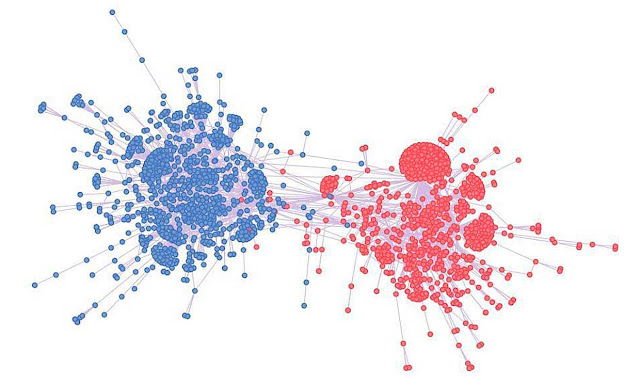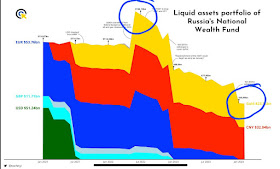Muh culture wars
Due to the constraints on human intelligence and mental energy, most of the discourse in modern society takes place with ideas, notions, and cliches blindly bundled up like subprime debt. One of the biggest of these bundles in recent years has been the so-called term "Culture Wars," which is supposed to provide a useful framework for dealing with a lot of social complexity.
Sometimes this sort of thing is given a respectable academic patina. For example, the Policy Institute at King's College London has come up with the following breakdown of the "Culture Wars," with what they see as four distinct groups within the supposed conflict:
Moderates (32%) – Support greater rights for women and ethnic minorities – but less strongly than Progressives. Agree political correctness gone too far, yet not nostalgic for past nor proud of empire. This groups demographic make-up includes 33% aged 35-54 and 38% aged 55 or over. 53% of this group are female. This group is politically diverse compared to the others with 38% Conservative, 33% Labour, and 26% supporting other parties with 63% of this group supporting remain. This group is 12% ethnic minority, which is broadly in line with the 11% in the sample as a whole.Traditionalists (26%) – Oldest and most heavily male group. Most nostalgic for country’s past and proud of British empire. 97% think political correctness gone too far, and most likely to feel UK has done enough on equal rights for historically marginalised groups. The demographics that define this group are 61% male with 56% aged 55 or older. 59% of this group support the Conservatives with 78% of the group identifying as Leavers. This group is 5% ethnic minority which is lower than the 11% in the sample as a whole.Progressives (23%) – Youngest group, with highest education level. Most likely to think women’s rights, ethnic minority rights and trans rights not gone far enough. Most likely to be ashamed of British empire, and most in favour of political correctness. The demographics that define this group are 45% aged 34 or younger with 55% of the group female. Almost 50% have university degrees, the highest share of all the groups. 46% of the group support Labour and 41% supporting a third party. 94% of the group identify as Remain. This group is 12% ethnic minority similar to the 11% in the sample as a whole.The Disengaged (18%) – Stand out for neutrality on politics and Brexit. Least likely to take a position on equal rights for women and ethnic minorities, and least likely to take stance on culture war issues. The demographics of this group are 40% aged 35 to 54 with the highest proportion of women with 58%. Lowest rate of home ownership (63%), and highest rate of social housing (17%). This group stands out due to their neutrality on politics and Brexit with 44% ‘don’t support any party’, and 37% don’t think of themselves as Leavers or Remainers. Those who do support a party are more like to support the Conservatives (28%) than Labour (16%). This group is 12% ethnic minority making it close to the 11% in the sample as a whole.
Well, thats's that nailed, then. Or is it?
If you wanted, you could probably disregard "The Disengaged" and split "The Moderates" between "The Progressives" and "The Traditionalists," reducing it all down to "wokeistas" on one side and "gammons" or MAGAtards on the other.
What this survey/ framework is more likely picking up on are the ongoing efforts to polarise Western societies, more than anything else. Most people I know have positions all over this supposed tribal division of opinion, as do I, and for a wide variety of reasons -- sometimes good, sometimes bad, sometimes objective, sometimes subjective. In my case, I try to work extra hard to have good and objective reasons.
If you wanted, you could probably disregard "The Disengaged" and split "The Moderates" between "The Progressives" and "The Traditionalists," reducing it all down to "wokeistas" on one side and "gammons" or MAGAtards on the other.
What this survey/ framework is more likely picking up on are the ongoing efforts to polarise Western societies, more than anything else. Most people I know have positions all over this supposed tribal division of opinion, as do I, and for a wide variety of reasons -- sometimes good, sometimes bad, sometimes objective, sometimes subjective. In my case, I try to work extra hard to have good and objective reasons.
But once you "identify" as one of the "culture war" tribes on offer, then it's game over. You will start feeling the moronic tug of your chosen group and the algorithmic promptings to share all the tribe's "beliefs." After that the warm, sweaty embrace awaits you, with its pungent odour of mutually supported cant.
You might just be a "Conservative" or a "Traditionalist" because you love your gun or your gas-guzzling car, but, before you know it, you find yourself getting looped into hating drag queens and being overly concerned about slags getting rid of their unwanted sprogs.
You might just be a "Conservative" or a "Traditionalist" because you love your gun or your gas-guzzling car, but, before you know it, you find yourself getting looped into hating drag queens and being overly concerned about slags getting rid of their unwanted sprogs.
The next thing you might notice is that once you criticise one of the shibboleths or prominent members of your assumed tribe, you are denounced not because your criticism is or isn't valid, but because you are now a "traitor" or an "infiltrator" from another tribe.
In this way, you may come to recognize that culture is not so much a way of building an identity or a place where you can feel at home, but is instead a way to control you and stop you criticising what you perceive to be bad ideas, and which may in fact be bad ideas.
In this way, you may come to recognize that culture is not so much a way of building an identity or a place where you can feel at home, but is instead a way to control you and stop you criticising what you perceive to be bad ideas, and which may in fact be bad ideas.
One of the main functions of culture throughout the ages
has been to stop intelligent people criticising stupid ideas
Culture, in this way, is actually the antithesis of "war" or legitimate struggle. It is the closing off of debate. "You have your god and I have mine," as it says somewhere in the Koran.
"Culture War" is thus revealed as a logically inconsistent, antithetical term. Culture Wars, with their Red and Blue tribes, while promoting a lot of externalised animosity and internalised over-centralisation, actually exist to prevent the genuine clash of ideas and to shut out the fresh air and daylight of critical evaluation. Visit the internet on any given day of the week to see what I mean.
In short, there is no such thing as a "Culture War." Culture, when all's said and done, is simply code for "Don't question my holy stupid idea." It is the exact opposite of the Battle of Ideas, something that seeks the battlefield and and the clash in which only merit will decide the winner.
"Culture War" is thus revealed as a logically inconsistent, antithetical term. Culture Wars, with their Red and Blue tribes, while promoting a lot of externalised animosity and internalised over-centralisation, actually exist to prevent the genuine clash of ideas and to shut out the fresh air and daylight of critical evaluation. Visit the internet on any given day of the week to see what I mean.
In short, there is no such thing as a "Culture War." Culture, when all's said and done, is simply code for "Don't question my holy stupid idea." It is the exact opposite of the Battle of Ideas, something that seeks the battlefield and and the clash in which only merit will decide the winner.
____________________
Colin Liddell is the Chief Editor of Neokrat and the author of Interviews & Obituaries, a collection of encounters with the dead and the famous. Support his work by buying it here (USA), here (UK), and here (Australia).



























